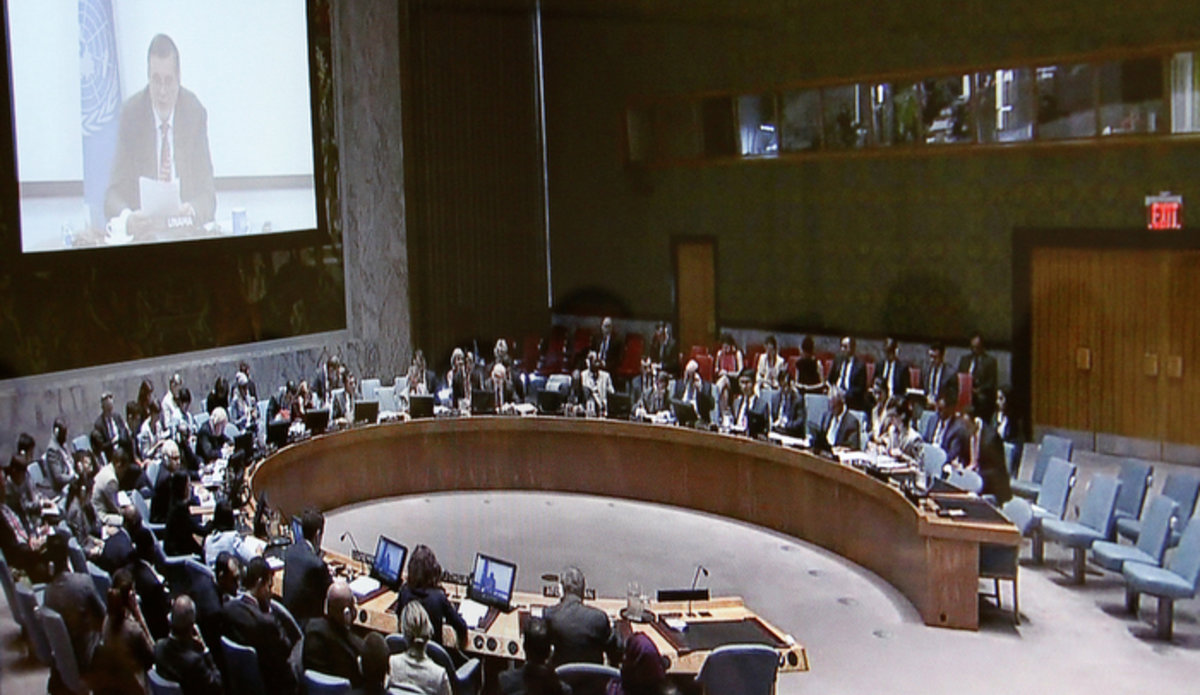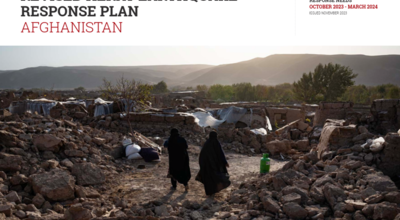At Security Council briefing, UN envoy flags importance of formation of new Afghan government
KABUL - With the results of its presidential election due to be announced within days but with no political agreement on a government of political unity in place, the top United Nations official in Afghanistan today briefed the world body’s Security Council on the country’s progress and challenges – both immediate and longer-term – and the important role to be played by a new administration.
“There is quite simply no better way forward other than a government of national unity led by an elected president, as certified by the Independent Election Commission (IEC), working in partnership with the new chief executive officer, “ the Secretary-General’s Special Representative for Afghanistan, Ján Kubiš, told the Council via video-teleconference from the Afghan capital of Kabul.
“All other options are either accompanied by heavy risk or undermine the country’s constitutional framework. Both candidates have previously committed to the concept of such an administration and to abide by the election results, subject to an audit process,” he added, while also noting that the ongoing protracted deadlock was a factor in his not being physically present at UN Headquarters in New York to deliver his briefing.
On 12 July, the two presidential candidates – Dr. Abdullah Abdullah and Dr. Ashraf Ghani – reached an agreement, which broke an impasse that emerged after the announcement of preliminary results from the election’s run-off on 7 July.
This agreement called for a complete audit of the results of the run-off, with both candidates committing to participate and accept the results of the comprehensive audit, while also agreeing to form a government of national unity. The agreement also called for the audit to be carried out by the IEC, in conformity with the Afghan constitution and laws, and with the United Nations providing advice and supervision throughout the process.
The IEC held its last adjudication session on findings from audited ballot boxes on Sunday, completing the nationwide audit of ballots cast in the run-off which marked the end of the UN supervisory role over the audit.
In his remarks, Mr. Kubiš said that agreeing to the modalities of a government of national unity has proved difficult, with final sticking points including how to best communicate results when supporters of both candidates genuinely believe that it was their candidate who won and will accept no other results, regardless of the results.
“I continue to emphasis that in a government of national unity there will be no losers, only partners,” the Special Representative said in his prepared remarks. “If there is no agreement by the time of the certification of results, new dynamics will be set in play with the potential to trigger further uncertainty, even the risk of conflict.”
In separate telephone calls last week, Secretary-General Ban Ki-moon urged compromise between the two candidates and an agreement on the national unity government prior to the announcement of the election results. His message was underscored by the Under-Secretary-General for Political Affairs, Jeffrey Feltman, during a brief visit to Kabul, where he met with the candidates
Speaking about the UN supervisory role in the audit, Mr. Kubiš – who also heads the UN Assistance Mission in Afghanistan (UNAMA) – said that the world body’s assessment was that the audit provided a “comprehensive and credible” check on the process, which was unprecedented in its scale, depth and scrutiny.
“Significant levels of fraud were detected and excised,” he said. “What was also confirmed was that millions of women and men turned out to vote on 14 June in support of a peaceful, democratic transfer of power.”
The establishment of a new government is also required, Mr. Kubiš stated, for action on a range of fronts. In the security arena, these include attempts to disrupt and exert control around the country by domestic insurgent groups coupled with international terrorist groups.
“Afghanistan’s security institutions will require sustained support,’ he said. “A new administration will need to rapidly conclude mutually-agreed legal frameworks in ensuring the necessary planning and preparations for continuity in international assistance.”
International military forces have been drawing down over past months, with their combat mission due to end at the end of the year and Afghan security forces taking full responsibility for the country’s security.

The prolonged deadlock has contributed to Afghanistan’s economic stagnation with a dramatic drop in government revenues.
“A new administration will need to undertake urgent action in averting a cash crisis and ensuring the continued smooth functioning of government, and in this it will need emergency support from donors,” Mr. Kubiš said. “Yet it is longer-term economic and governance reforms that will be vital in improving revenues and addressing the increasing fiscal gap.”
Noting the importance of regional relationships for Afghanistan, the UN official said a “reset” may be possible for the new administration in the country’s relationship with Pakistan, one of its most important and challenging relationships. In addition, he continued, a new administration could also be a chance to “breathe fresh air” into Afghan-led reconciliation efforts with anti-government elements, and for which the United Nations stands ready to assist.
In his closing remarks, the Special Representative noted the role of outgoing President Hamid Karzai in his country’s progress, and flagged that his briefing to the Council would be his last as the head of UNAMA. He thanked the 15-member Council for its support and recognized the efforts of UN staff members since he took up the post in January 2012, paying particular mention to colleagues such as his adviser Vadim Nazarov and others who were killed in the line of duty.
“The aim of all of our work – what keeps us committed in an often challenging, difficult and dangerous environment – is to support the aspirations of the people of Afghanistan for a more prosperous and secure future in a stable and united Afghanistan,” Mr. Kubiš said. “It is these wishes that must be brought to the fore at this critical juncture.”
Click here for the Special Representative's full remarks to the Security Council
 UN
UN








